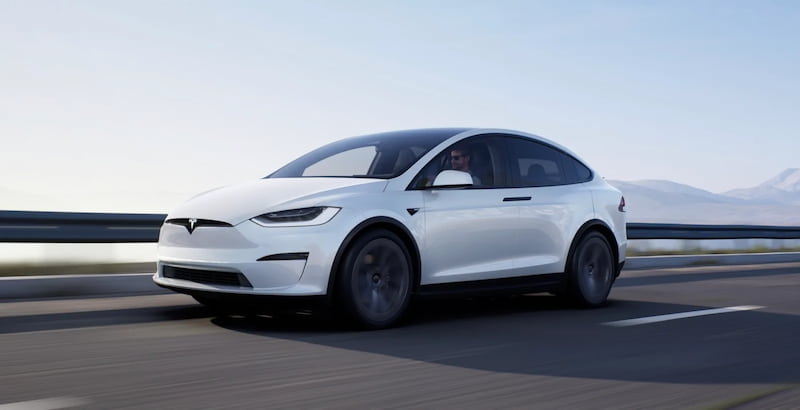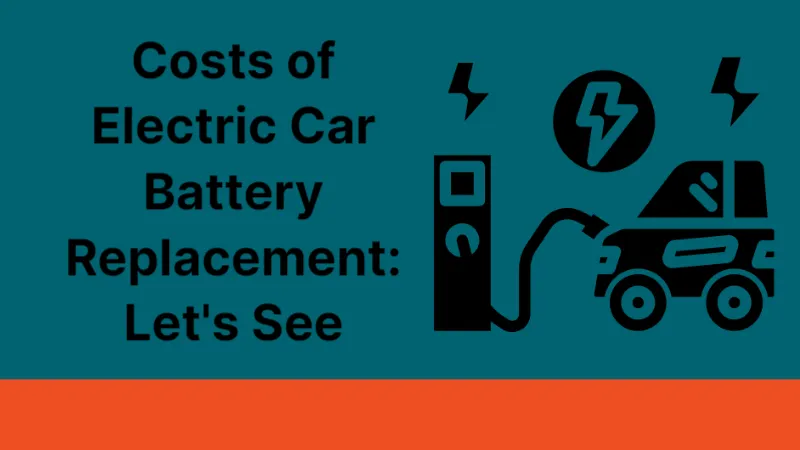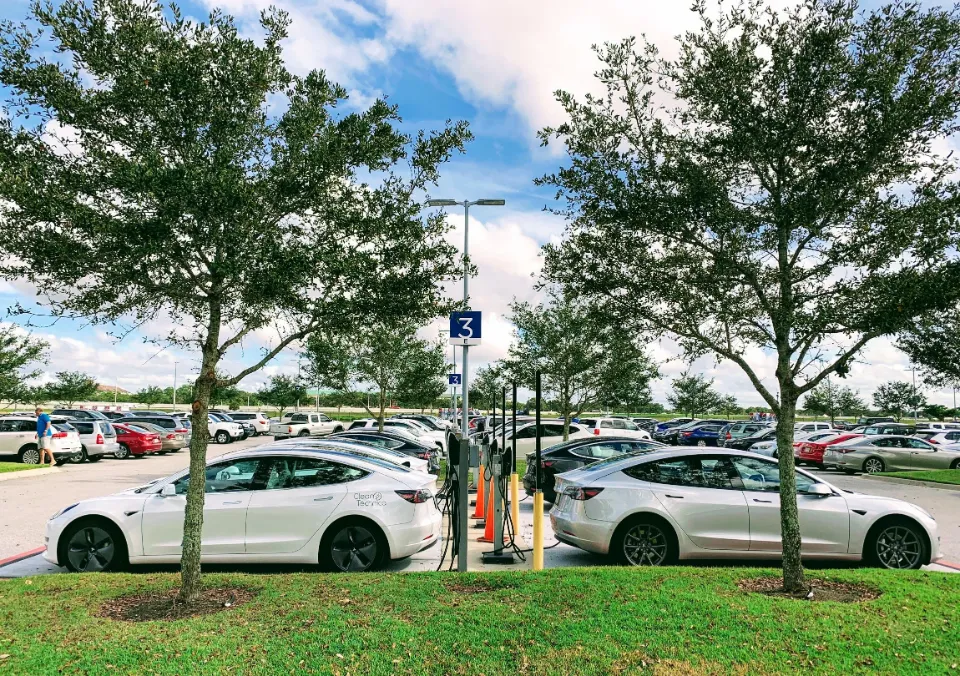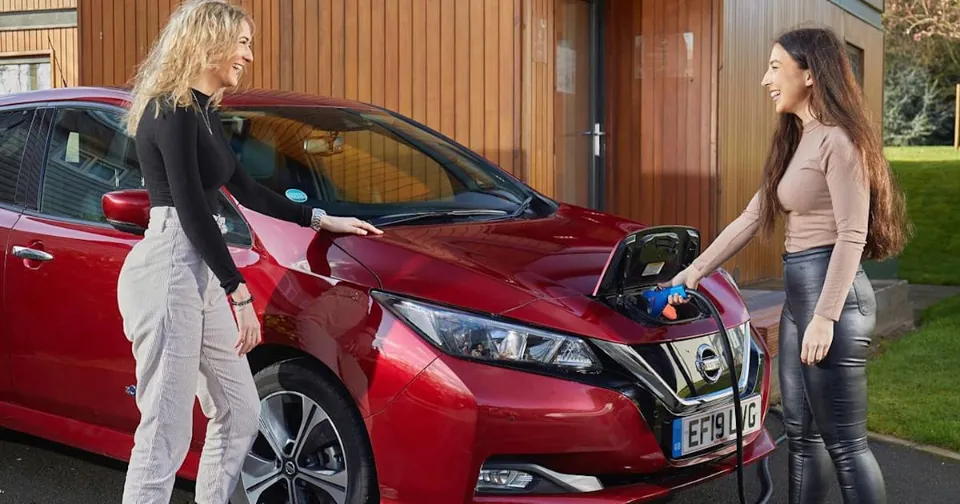Most people who drive plug-in hybrid or all-electric vehicles never need to replace the battery pack. This is advantageous because EV lithium-ion battery packs are not inexpensive. What you need to know about the costs of Electric Car Battery Replacement is provided below.
Batteries are becoming less expensive, and this trend is anticipated to continue. Additionally, the automaker offers an eight-year or 100,000-mile warranty on EV battery packs. Additionally, keep in mind that modern batteries are made to last longer than the vehicles they power. It’s likely that you will trade in your electric car for another zero-emission model long before the battery needs to be changed.
How Much Does An EV Battery Cost to Replace?
Numerous variables affect the cost of replacement, which can range from $0 to $20,000. You should receive a replacement battery at no additional cost if it is still covered by the manufacturer’s warranty, which is typically 8 years and 100,000 miles. What if it is no longer covered by warranty?
Since battery replacements are still uncommon, it can be challenging to locate current cost information. The price you would pay today differs from the price you would pay in one year, five years, or even ten years from now as battery prices continue to fall. in 2019, the Data was compiled by the Mack Institute for Innovation Management at the Wharton School of Business from sources including academia, news, search engines, industry experts, and manufacturer public statements.
Between 2007 and 2019, they discovered a 16% decrease in battery pack prices. The average price of battery packs was estimated by the authors to be $161/kWh in 2019. According to that estimation, a 100 kWh out-of-warranty battery, which is typical of Tesla long-range vehicles, would cost at least $16,100 in 2019 before labor, taxes, etc. If the trend in battery price reduction continues, then the cost in 2019 dollars should be around $56 per kWh, or $5,600 to replace a 100 kWh battery, by 2025. In terms of overall cost, that is a significant change.
In what ways does this differ from other battery cost aggregators?
The projected cost by 2025 should be between $120 and $135 per kWh, according to a report released in April 2019 by the International Council on Clean Transportation (ICCT). This is not as kind as the Wharton analysis, which estimates that by 2025, the cost of a 100 kWh battery replacement outside of warranty could reach $13,500. The ICCT report does acknowledge that actual battery cost reduction has been consistently underestimated by forecasting costs for batteries. They warn that if a slightly more optimistic analysis is done, battery pack-level costs could be $89 per kWh by 2025 and $56 per kWh by 2030.
In Dec. 2020, the average price of battery capacity was $137/kWh, and by Dec. 2023, the average price was expected to be close to $100/kWh, which is seven years sooner than the Bloomberg New Energy Finance (BNEF) models predicted in 2016. By 2030, average battery pack level costs are predicted to be $62/kWh by the BNEF models, which are cited in the 2019 ICCT report. By 2030, replacing a 100 kWh battery pack could cost at least $6,200.
In 2016, McKinsey reported that the average battery pack cost was around $227/kWh, and predictions indicate that by the end of 2020, average EV battery pack prices will be under $190/kWh. These expectations were obviously surpassed, as shown by the 2020 Bloomberg NEF report that was just mentioned.

Real-World Replacement Costs
So far, we have only discussed the price of replacement batteries from the manufacturer. Battery substitutes, however, might be less expensive. Full-service battery replacement with lifetime warranties is offered by businesses like hybrid2go and evsenhanced.com.
How much would it cost to replace the battery in a few of America’s favorite all-electric vehicles, the Nissan Leaf and Chevy Bolt? As of this writing, the battery would cost about $6,200 for the Leaf and $16,000 for the Bolt. The cost of a new battery for the well-liked BMW i3 is roughly $13,500. However, you can find replacement batteries for the Bolt and the i3 on eBay for as little as $2,000.
Naturally, it costs more to replace the batteries in the vehicles with the longest range because they have larger battery packs. The Tesla Model 3 can travel more than 300 miles on a single charge, and a new battery will set you back about $16,000. For an additional $2,300 in labor costs, you can replace that Tesla battery. This is due to the fact that changing the battery pack on the majority of electric cars is a difficult process, much like changing the engine in a gasoline-powered vehicle.
While the physical work only takes a day or so, getting a replacement battery can take weeks. Also keep in mind that not all battery replacements necessitate replacing the entire battery pack; occasionally, the mechanic can just replace the damaged cells to save you time and money.
Discounted Electric Battery Options
Remanufactured electric batteries: For owners of electric vehicles, remanufactured batteries present more affordable options. Electric vehicle owners who want to purchase a less expensive battery outside of a dealership or mechanic shop don’t have many options, though. An alternative Tesla battery could cost around $14,000, even with a remanufactured battery.
There are some pre-owned batteries for electric vehicles available, but they come with the warning that a battery’s history of charging can have an impact on its condition. It might have fewer miles on it than you think if the prior owner didn’t charge the battery according to best practices. However, depending on the model, buying a used electric battery does save you money up front.
What is An EV Battery?
Both hybrid vehicles and EVs use high-voltage batteries known as “traction” batteries, but they use them in different ways:
- Hybrid vehicleshave traction batteries that work in conjunction with a small internal combustion engine to propel the vehicle forward and recharge the battery.
- Plug-in hybrid vehiclestake this concept a bit further by providing a slightly larger EV battery that can travel between 15 and 42 miles before requiring an internal combustion engine to drive forward and charge the traction batteries.
- Electric vehiclesdon’t have any internal combustion engines. To power the numerous electric motors inside each vehicle, they instead use enormous traction batteries.
To power low-voltage systems throughout the vehicle, the majority of EVs and hybrid cars also have auxiliary 12-volt batteries (similar to those found in gas-powered cars). However, don’t confuse these small batteries with the traction batteries that actually propel these cars forward.
Typically, traction batteries are built into a battery pack by connecting a number of battery modules together. The most prevalent kind of battery module used in these battery packs is lithium-ion.

How Long Do Traction Batteries Last?
Eventually, all batteries will experience capacity loss and need to be replaced, regardless of their design. Anything with a rechargeable battery (smartphones, Bluetooth speakers, etc.) has this problem; it is not just an issue with electric vehicles.) will suffer the same fate after multiple charging cycles. The duration of a battery is also influenced by the manner in which a device is charged and the rate at which that energy is used up.
How long a traction battery can last is not subject to any strict regulations. Although the data is currently sparse, there are anecdotal reports of Tesla batteries lasting well over 300,000 miles and Prius owners pushing their hybrids to well over 500,000 miles. There is currently no definite way to predict the average battery life span of EVs because the technology has only recently become widely used.
We can tell you that electric vehicles purchased in America come with very generous warranties, typically lasting eight years or 100,000 miles, whichever comes first. Other warranties will cover the replacement of any EV battery that has fallen below 60% or 70% of its maximum capacity, while some only cover the EV battery if it can no longer be charged at all.
While pure electric vehicles like the Nissan Leaf have batteries that last about eight to ten years, well-known models like the Toyota Prius typically have batteries that last eight to fifteen years.
Read about How Much Does An EV Charging Station Cost?
Symptoms of a Bad EV Battery
There are several signs that might indicate your traction battery is nearing its end:
- Reduced fuel economy (hybrids only):Your traction battery may be failing if you notice that your hybrid vehicle’s overall fuel efficiency has suddenly declined.
- Fluctuating charge levels:You might have a problem with your battery pack if your EV battery indicates full charge one minute and empty the next.
- Low battery after sitting:Your battery is almost certainly failing if your electric vehicle is parked and the battery level is low the following morning.
- Loud fan noises:Your EV’s fans running continuously may indicate the battery is overheating and is likely to fail soon.
Frequently Asked Questions
How Do Hybrid Cars Work?
For propulsion, hybrid vehicles combine an internal combustion engine and an electric motor. Gasoline power provides more range and more power when needed; electric power is typically used when the car is stopped or moving slowly. In order to refuel their traction batteries, hybrid systems may also use a portion of the energy generated by braking.
How Long Do EV Batteries Last?
Typically, EV batteries last between eight and fifteen years. The number of cycles an EV battery experiences, the usage pattern, and the types of weather the vehicle is frequently exposed to all affect how long the battery will last.
Do Extended Car Warranties Cover EV Batteries?
In general, extended warranties do not cover Hybrid batteries and EV parts are both covered by warranties that are generally longer than average by many manufacturers.
How Much Does It Cost to Replace An Electric Vehicle Battery?
No matter what kind of electric vehicle you have, replacing the battery is an expensive endeavor.
The high costs are primarily due to the battery, which can cost upwards of $10,000 for well-known cars like the Tesla Model S or Model 3. Battery options for owners of electric vehicles are limited, with the majority being forced to go through the manufacturer.
EV batteries that have been previously used typically come from a damaged EV and are difficult to find. (As of publication, there isn’t really any third-party manufacturing.)





